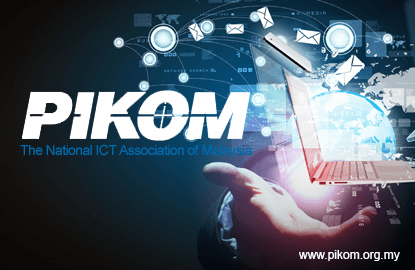
KUALA LUMPUR (Oct 19): The National ICT Association of Malaysia (PIKOM) recommends enhancing the tender process in the Government Link Companies (GLC) sector in creating greater transparency and integrity within the procurement exercise.
One of its recommendation includes a uniform and standardised cost for tender documents.
“While PIKOM accepts there is need to ensure only serious bidders should be allowed to participate, it hopes the current cost of up to RM10,000 for tender documents will be reviewed, as this may discourage or exclude many genuine bidders, especially from smaller companies,” it said.
PIKOM also calls for more tax relief, as well as re-introduction of the withdrawal from the Employees Provident Fund (EPF) to incentivise consumers to purchase information and communications technology (ICT) products and services.
“[We] also recommend re-introducing EPF withdrawal to purchase computing products, peripherals and consumables, such as PCs, laptops, smart phones, and tablets, including broadband subscription, with a clear list of items and services to prevent abuse,” PIKOM said.
In a statement, PIKOM said that demand for computers and related items dropped by an estimated 30%, after the implementation of the Goods and Services Tax (GST).
“The impact is compounded by the weakening of the ringgit, which has seen its value plunge against the USD and other major currencies, and the GST implementation has also affected ICT adoption among the small to medium enterprises (SME) sector, as well as the rural and underprivileged communities,” PIKOM said.
To cushion the impact of GST on ICT products and services, as well as to spur the local ICT market, PIKOM is recommending for a personal tax rebate or deductions on cost incurred for individuals pursuing ICT-related certification, as well as to allow companies to claim Human Resources Development Fund (HRDF) on the same.
Furthermore, the group is recommending the increase of income tax deductible amount for purchase of personal computers (PCs) and laptops for personal use to RM4,000, from RM3,000 currently.
The group is also recommending for the government to regulate pricing of broadband rates by telcos and fostering competition among the players, in order to encourage greater uptake of broadband.
“[This will] bridge the digital divide and boost penetration, especially in rural and underserved areas,” it said.
PIKOM noted that the cost of internet connectivity in the country is still too high, compared to neighbouring peers such as Singapore and Thailand, despite the government’s efforts to make it more affordable.
As a matter of comparison, Malaysia is paying RM199 for 10Mbps, which amounts to RM19.90 per Mbps; while Singapore is paying RM95.15 for 15Mbps, and Thailand is paying RM79.30 for 12Mbps, according to data collected by Asean Briefing.
“PIKOM believes that more affordable movement of content, data and transactions will boost the overall advancement of the local economy,” it added.